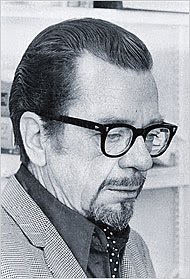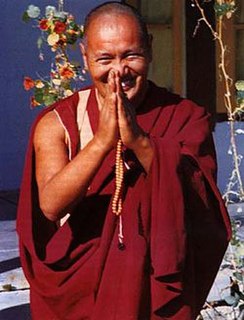A Quote by D. H. Lawrence
The words themselves are clean, so are the things to which they apply. But the mind drags in a filthy association, calls up some repulsive emotion. Well, then, cleanse the mind, that is the real job. It is the mind which is the Augean stables, not language.
Related Quotes
What's happening is the language. Not only in the usual sense of being interesting (which it is), but in the new sense that words are events, as real and important in themselves as wars and lovers... It is to the word, then, that the mind moves, and the word responds by taking on a physicality, even a sensuality, we have all been trained to ignore. Words have weight, and the distance between two can be a chasm filled with forces of association... What Clark is doing is genuinely new.
It isn't a hunch but the subconscious mind, which is the creative mind, at work. That is the mind which makes artists do things without their knowing how they came to do them. Perhaps with me it was the cumulative effect of a lot of little things individually insignificant but collectively powerful.
Meditation is nothing but putting the mind aside, putting the mind out of the way, and bringing a witnessing which is always there but hidden underneath the mind. This witnessing will reach to your center, and once you have become enlightened, then there is no problem. Then bring the mind in tune with you
The most powerful prayer, one well-nigh omnipotent, and the worthiest work of all is the outcome of a quiet mind. The quieter it is the more powerful, the worthier, the deeper, the more telling and more perfect the prayer is. To the quiet mind all things are possible. What is a quiet mind? A quiet mind is one which nothing weighs on, nothing worries, which, free from ties and from all self-seeking, is wholly merged into the will of God and dead to its own.
I say that creeds, dogmas, and theologies are inventions of the mind. It is the nature of the mind to make sense out of experience, to reduce the conglomerates of experience to units of comprehension which we call principles, or ideologies, or concepts. Religious experience is dynamic, fluid, effervescent, yeasty. But the mind can't handle these so it has to imprison religious experience in some way, get it bottled up. Then, when the experience quiets down, the mind draws a bead on it and extracts concepts, notions, dogmas, so that religious experience can make sense to the mind.
The love of literature, of language, of the mystery of the mind and heart showing themselves in the minute, strange, and unexpected combinations of letters and words, in the blackest and coldest print—the love which he had hidden as if it were illicit and dangerous, he began to display, tentatively at first, and then boldly, and then proudly.
The practice of Zen mind is beginner's mind. The innocence of the first inquiry—what am I?—is needed throughout Zen practice. The mind of the beginner is empty, free of the habits of the expert, ready to accept, to doubt, and open to all the possibilities. It is the kind of mind which can see things as they are, which step by step and in a flash can realize the original nature of everything.
Leadership is creating a state of mind in others. The difference between being a leader and manager, all due respect to managers, is that leaders have to create states of mind. But a leader, first of all, has to have a clear state of mind, which is usually her own vision, which energizes her, motivates others, and then creates that state of mind in others.
The fact is that when you are in a clean, clear state of mind you will be free to pay full attention to what you are doing and you will therefore naturally do it well. Problems come when you are not living in a natural state of mind. Then, no matter what you are doing your mind will be on something else.
The revolutionary spirit is mighty convenient in this, that it frees one from all scruples as regards ideas. Its hard absolute optimism is repulsive to my mind by the menace of fanaticism and intolerance it contains. No doubt one should smile at these things; but, imperfect Esthete, I am no better Philosopher. All claim to special righteousness awakens in me that scorn and anger from which a philosophical mind should be free.






































